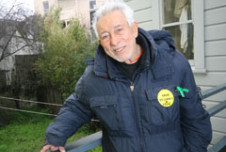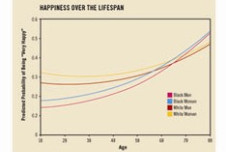Researchers at the University of Southern California have made yeast cells live 10 times longer than they naturally would by putting them on a strict, low-calorie diet, and removing RAS2 and SCH9, two genes that cause the yeast to age.
Regardless of whether or not the technique can be applied to humans, the study, published in the Public Library of Science Genetics, is a breakthrough. This is the largest extension of lifespan achieved with any living organism, according to an article in the British newspaper The Independent, and it raises at least two huge questions about aging: "Can we live forever?" and "Why do we age in the first place?"
Lead researcher Valter Longo has an answer for the first: "I don't think there is an upper limit to the life of any organism," he tells The Independent, conceding that we're "very, very far" from achieving a 10-fold increase in the life of humans, and light years away from living forever. According to the article, this theory flies in the face of the entire field of aging research.
Longo has another theory for why we age at all, which this time flies in the face of evolutionary biology: He believes that aging is altruistic. As The Independent reports:
"He believes that aging may not simply be a side-effect of the wear and tear of life, but is also a genetically programmed condition designed to rid the population of aged individuals to make way for younger ones.
"It is an alluring idea, albeit one thought to have been discredited by the evolutionary biologists George Williams and John Maynard Smith 40 years ago. It is a common assumption among non-scientists that aging and death occur in order to make way for the next generation, but … Longo is convinced that his experiments on manipulating the gense of yeast show that aging is not a mere side-effect of life, but a deliberate, genetically programmed process honed by natural selection. … It also assumes that it is an altruistic act brought about for the benefit of the future population.
" 'Basically, it is the first demonstration, to our knowledge, that aging is programmed and altruistic,' Longo says. 'The organisms we have studied die long before they have to in order to provide nutrients for "mutants" generated within their own population. Thus, billions of organisms die early so that a few better-adapted individuals can grow.' "
In other words, we age so that we eventually die off and make room for our newer, better-adapted offspring. If that's true, that means living forever might not serve the greater good.




Comments